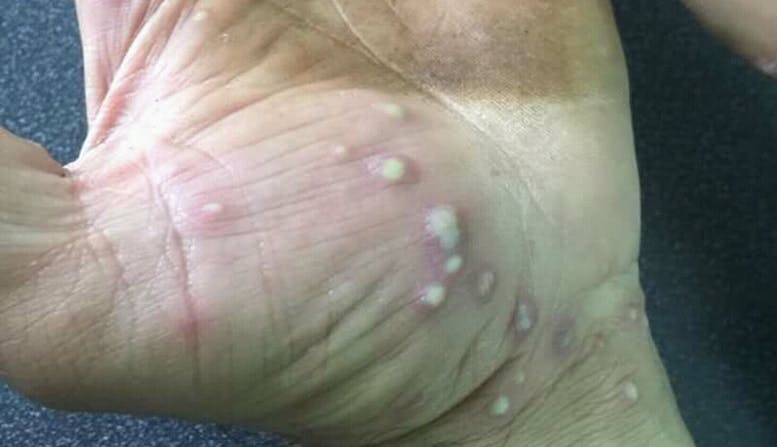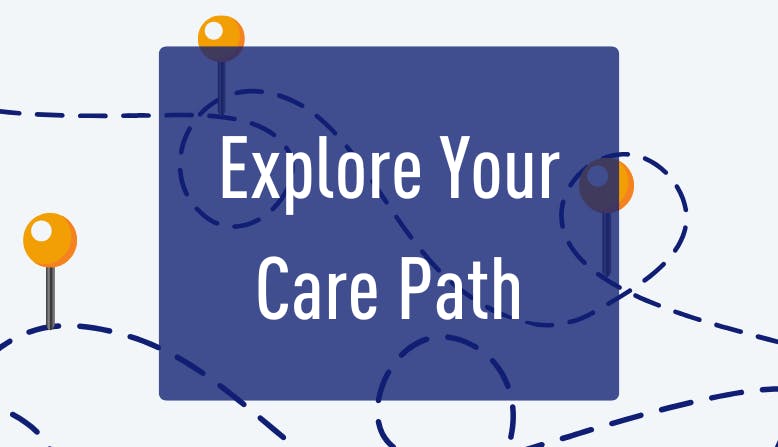Causes & Triggers
The cause of psoriasis is not fully understood. Psoriasis plaques occur because the overactive immune system speeds up skin cell growth. Normal skin cells completely grow and shed (fall off) in a month. With psoriasis, skin cells do this in only three or four days. Instead of shedding, the skin cells pile up on the surface of the skin.
Inflammation caused by psoriasis can impact other organs and tissues in the body. People with psoriasis may also experience related health conditions. One in three people with psoriasis may also develop psoriatic arthritis.
Palmoplantar psoriasis can be triggered by the same factors as other types of psoriasis. Common psoriasis triggers include:
- Stress
- Certain medications
- Smoking tobacco
- Alcohol
- Injuries or trauma to the skin
- Illness, such as infections
- Changes in weather
- Diet
Learn more about triggers and flares by downloading your free Flare Guide and Symptom Tracker.
Diagnosis
A health care provider will take several factors into consideration when making a diagnosis for psoriasis, including:
- The appearance of the skin. Different types of psoriasis have different appearances.
- The location of psoriasis. Certain types of psoriasis are more common in certain locations.
- Itch of the skin. This is a common symptom of psoriasis.
- A skin biopsy (the removal of a small piece of skin to be looked at under a microscope). A biopsy may also be done to determine if it is psoriasis or another skin condition.
Treatment & Management
Although there is no cure, there are more effective psoriasis treatments today than ever before. Treating psoriasis can help improve symptoms as well as lower the risk of developing psoriasis comorbidities such as psoriatic arthritis, heart disease, obesity, diabetes, and depression.
Treatments for psoriasis include:
Because this type of psoriasis is difficult to treat, you may need to try many treatments to find the one that works best for you. Keep working with your health care provider until you find a treatment that works for you.
Your health care provider may recommend occluding (covering) the skin to make a topical treatment work better. You can occlude by wearing cotton or plastic gloves on the hands or cotton socks on the feet. Always follow your provider’s directions on occluding and only occlude if your provider recommends it.
Prevention
There is no known way to prevent the onset of psoriasis, however, there are many ways that you can manage your triggers to reduce flares.
Outlook/Prognosis
Psoriatic disease is lifelong, and symptoms may resolve and recur throughout the lifetime.
While there is no cure for psoriasis, treatments today are more effective than ever before and research into new treatments, as well as a cure, is ongoing. Treating psoriasis can help improve symptoms and may decrease the associated inflammation that can lead to psoriasis comorbidities such as psoriatic arthritis, heart disease, and depression.




